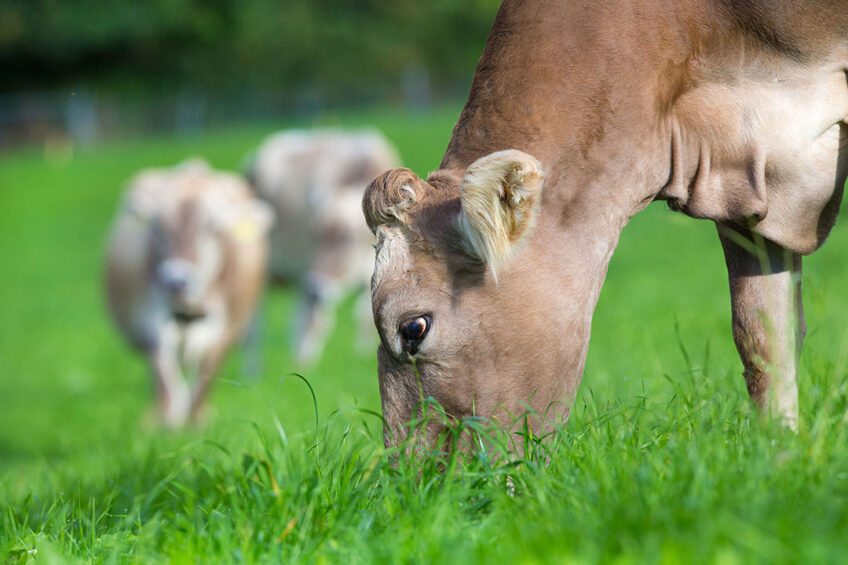Exploring the potential of methane suppressing feed products

The UK Government has received more than 4,000 answers to questions raised as part of its consultation exploring the potential opportunities and challenges associated with the use of methane suppressing feed products.
The emerging technology products including a range of items including methanogenesis inhibitors, seaweeds, essential oils, organic acids, probiotics and antimicrobials are seen as an answer to delivering emissions savings.
The consultation paper sought views on whether uptake could be best driven by government interventions, industry of voluntary led solutions and what these interventions might involve.
There were a total of 213 responses:
- farmers (52%),
- organisations (31%)
- and other individuals (17%).
The responses have shone a light on the use of feed additives used as part of the normal on farm feeding regime with just 31% of farmers saying they always or usually used them. They did so to manage deficiencies and to enhance productivity.
High awareness of methane suppressing feed products
However, the study did find a high level of awareness of methane suppressing feed products with 93% of organisations and 76% of farmers responding affirmatively. More than threequarters of both farmers and organisations understood that role of seaweeds as methane inhibitors. But there was a difference in understanding of some of the types of products This found that:
- 79% of organisations were aware of methanogenesis inhibitors (for example, 3-NOP, nitrate) compared to just 32% of farmers.
- 63% of organisations said they understood probiotics were methane suppressing feed products compared to 45% of farmers.
- 72% or organisations said plant secondary metabolites, such as essential oils, tannins and saponins, were good methane inhibitors compared to just 38% of farmers.
There was lower understanding of the role of propionate precursors, such as fumaric acid, malate and aspartate and antimicrobials or ionophores in this area.
And 45 respondents providing further information with the majority providing examples of additional feed products, including novel species of grass and legume (or changes in sward composition), biochar, fatty acids and branded products.
Barriers: Incompatible farm practices
There were low levels of specific trials plans within farmer supply chains. Some respondents outlined a wish to trial methane suppressing feed products, but said barriers such as having incompatible farm practice, the need for research on economic benefit and cost, had prevented them so far from undertaking them.
The jury was out over the current perception of using such feed products in livestock diets with just 8% of farmers and 15% of organisations saying they were very positive. Those with a negative view cited the necessity of these products and the need to additional livestock greenhouse gas emissions being placed on the agricultural sector, as well as their cost, naturalness and potential impact on animal welfare.
The consultation also asked which attributes respondents thought important when considering such products.
Need for scientific evidence
Several respondents flagged the need for further scientific evidence, with a few wishing for guaranteed long-term efficacy across varying farm systems. Other comments included consideration of unintended consequences, adequate cost-benefit comparison, and the need for a holistic approach to reducing emissions from livestock farming.
The consultation also wanted to gauge thoughts on consumer willingness to purchase meat or dairy products produced by cattle and sheep that are regularly fed methane suppressing feed products. Nearly 70% of organisations felt consumers would definitely or maybe buy such meat but the level fell to just 44% among farmers.
Current on farm feeding regimes
The study looked at current on farm feeding regimes and whether farmers would need to make changes to introduce methane suppressing products. The majority of farmers said their livestock were either out all year, grazed with silage-based winter ration or grazed with buffer feeding and silage winter ration. Half of them said substantial or some changes would be needed.
The largest barriers to their use were seen as current farm practice of feeding regime (for example organic), price, consumer perception or no method of monitoring or measuring efficacy.
Financial incentives
Finally, respondents said financial incentives (63% farmers and 90% organisations) would be effective at increasing use of such products, with lower support, especially among farmers for regulatory requirements, supplier contracts, standard accreditations and certifications (for example, Red Tractor), voluntary commitments (industry led targets or roadmaps) or independent advice (consultants, feed advisers). Mandatory verification of product claims and independent standards were seen as the way forward for verification, which should ideally be conducted by either independent research universities or college farms or government and their agencies.
The findings will be used by the UK government as it further considers policy in this area. Farming Minister Mark Spencer has indicated that he hoped to see methane-suppressing feed products in the market from 2025 in suitable cattle systems.
The agricultural sector in the UK accounted for around 10% of the total greenhouse gas emissions in 2019, with methane emissions contributing substantially to that figure.











